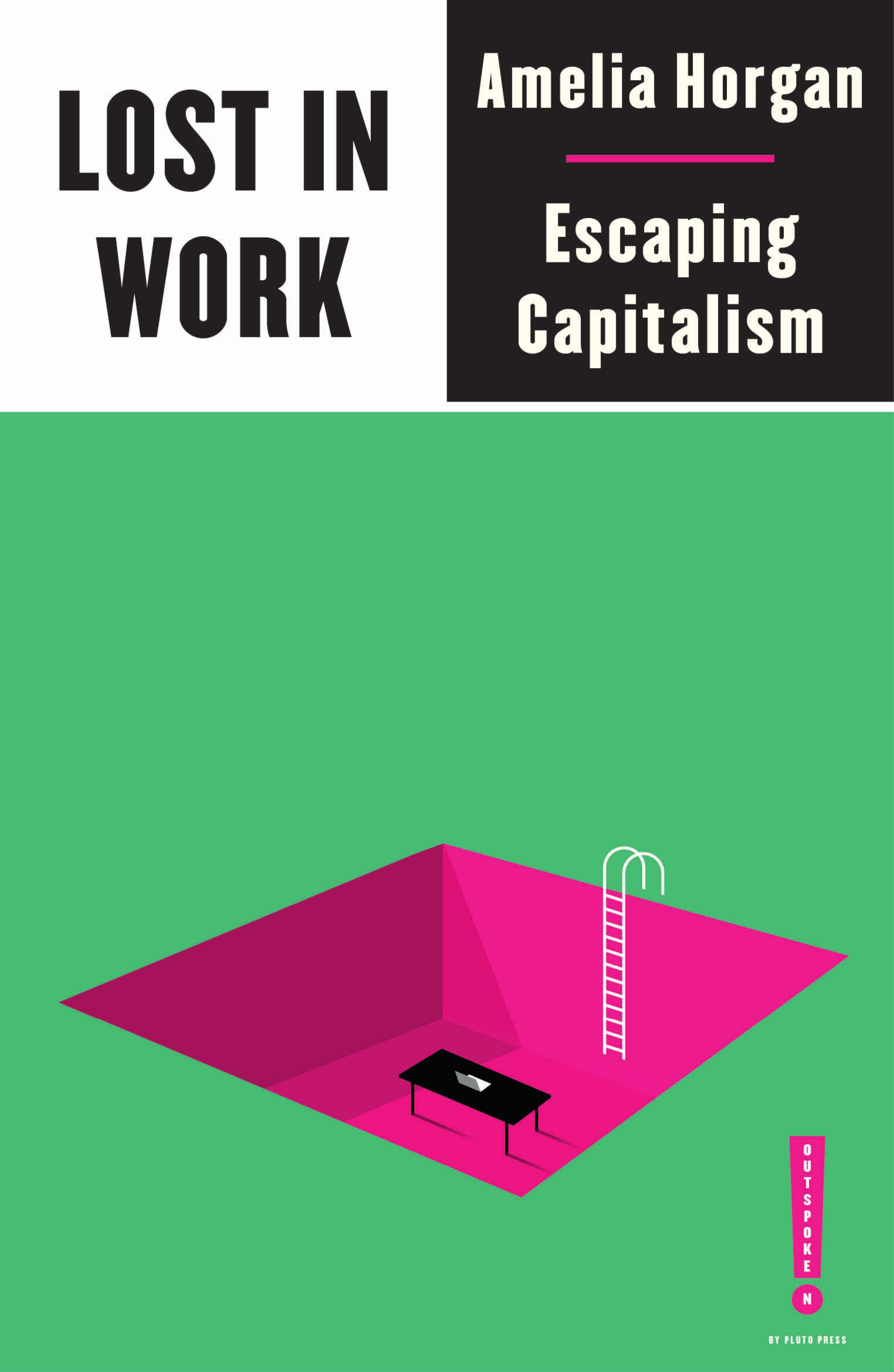Lost in Work: Escaping Capitalism by Amelia Horgan

Author:Amelia Horgan [Horgan, Amelia]
Language: eng
Format: epub, pdf
Tags: Politics, Sociology, History, Work, Anti-Work
ISBN: 9780745340913
Google: bKXvzAEACAAJ
Goodreads: 51970461
Publisher: Pluto Press
Published: 2021-06-19T23:00:00+00:00
Chapter 5
Jobification nation: When play is serious business
A popular image has been circulating online for the past few years. A simple black and white outline of a rose adorned with text proclaiming that âyou are worth so much more than your productivityâ. The image, made by Instagram user and designer @radicalemprints, went viral, or as viral as left-leaning memes can go, in 2015.1 If youâre in any radical online spaces, itâs likely that youâll have seen it or seen a version of it. The intention of the image is to call into question the attachment of oneâs self-worth to how much work one does or trappings of external success. That we measure ourselves against standards we canât meet because there is always, theoretically, more we could be doing, is a real source of pain and frustration. The claim, âyou are worth so much more than your productivityâ is an attempt to reimagine what value is or what a personâs worth could be. The limitation of this kind of thinking is that while reconfiguring our individual attitudes can act as a balm against a personâs feelings of inadequacy or failure, they do little, usually, to address the reality that your socially measured worth and your productivity, at work or for future work, are related. Without building durable and shared sites of worth outside of market relations, we are stuck with the valuation of worth as productivity.
Why is it that productivity has such a pull for so many of us? We find ourselves looking for that final hack that will set our day right, allow us to speed through our growing to-do-lists, plan for the future but not to sweat the small things, rise and grind, and so on. We might feel that we simply have too much to do and not enough time to do it in. This feeling is not in and of itself a new phenomenon: worries about the impossibility of doing everything someone should do, such as read all the right kinds of things, are ancient, dating back to at least the philosopher Seneca.
Complaints of nervous exhaustion and neurasthenia in the eighteenth and nineteenth centuries respectively prefigure todayâs âburnt-outâ society. In 1733, George Cheyneâs The English Malady linked city living and the pace of modern life to the problem of weak nerves. Weak nerves, he argued, meant the body was unable to properly circulate vital fluids, causing lowness of spirits, lethargic dullness and melancholy.2 While an excess of the pleasures of civilisation were behind Cheyneâs malady, the nervous ailments of the late nineteenth and early twentieth centuries were caused not by excess but delicate oversensitivity to external stimuli, a sensory overload caused by, among others, the periodical press, steam power, too much brain work, or, in the case of women, any brain work. Neurasthenia, like todayâs burnout, was for high-flyers, with writers like Virginia Woolf and Marcel Proust known to have suffered from the illness.3 While contemporary corporate burnout is treated with luxury spa retreats and mindfulness sessions
Download
Lost in Work: Escaping Capitalism by Amelia Horgan.pdf
This site does not store any files on its server. We only index and link to content provided by other sites. Please contact the content providers to delete copyright contents if any and email us, we'll remove relevant links or contents immediately.
Zero to IPO: Over $1 Trillion of Actionable Advice from the World's Most Successful Entrepreneurs by Frederic Kerrest(4575)
Machine Learning at Scale with H2O by Gregory Keys | David Whiting(4313)
Never by Ken Follett(3958)
Harry Potter and the Goblet Of Fire by J.K. Rowling(3860)
Ogilvy on Advertising by David Ogilvy(3624)
Shadow of Night by Deborah Harkness(3370)
The Man Who Died Twice by Richard Osman(3081)
Book of Life by Deborah Harkness(2939)
The Tipping Point by Malcolm Gladwell(2927)
Will by Will Smith(2922)
Purple Hibiscus by Chimamanda Ngozi Adichie(2858)
0041152001443424520 .pdf by Unknown(2846)
My Brilliant Friend by Elena Ferrante(2832)
How Proust Can Change Your Life by Alain De Botton(2818)
How to Pay Zero Taxes, 2018 by Jeff A. Schnepper(2655)
Hooked: A Dark, Contemporary Romance (Never After Series) by Emily McIntire(2556)
Rationality by Steven Pinker(2367)
Can't Hurt Me: Master Your Mind and Defy the Odds - Clean Edition by David Goggins(2343)
Borders by unknow(2316)
